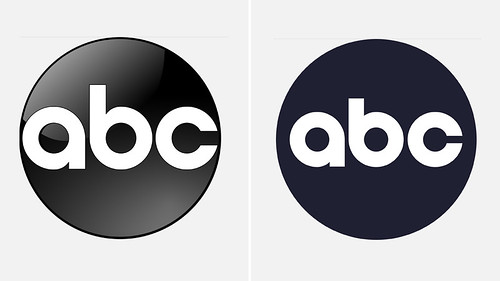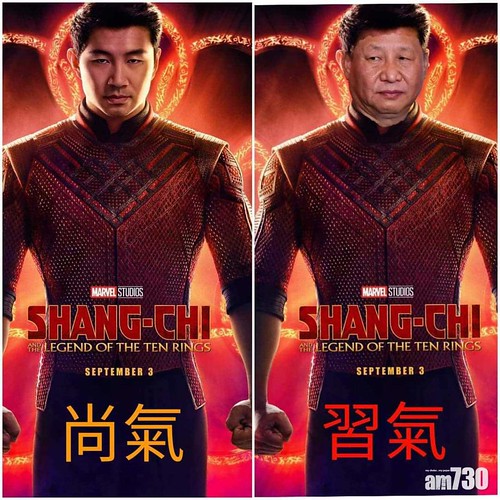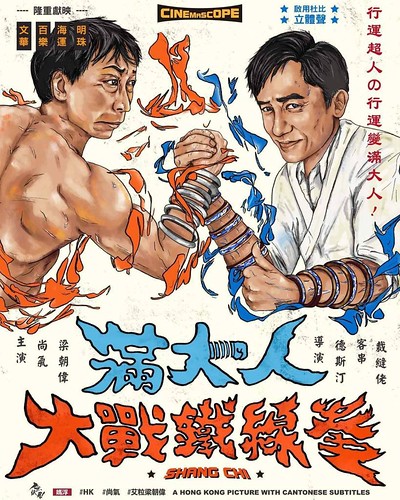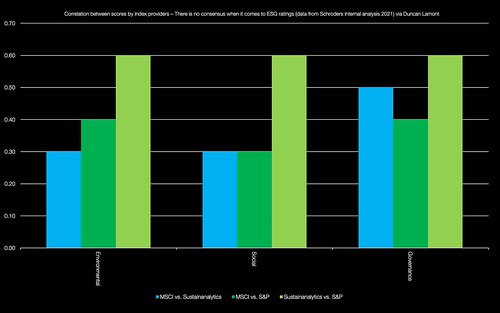RISC V
There is heat starting to generate (finally) behind RISC V: Marvell founders back data centre RISC-V chiplet startup | EE News Europe and Apple is doing their due diligence with a RISC V code port: Apple is Reportedly Designing Various Embedded Subsystems across all Operating Systems using RISC-V – Patently Apple – is now exploring and developing various embedded subsystems across all Operating Systems using RISC V. The emerging Open Source RISC V architecture is now being used by companies like Nvidia, Google, Oculus, Qualcomm, Rambus and others for IoT devices to supercomputers, smartwatches and autonomous vehicles. Amazon and Alibaba are currently designing their own cloud and data center chips. This week Apple was shown to be recruiting RISC V “high-performance programmers. More specifically, Apple is currently seeking out experienced programmers with detailed knowledge of the RISC V instruction set architecture (ISA) and Arm’s Neon vector ISA for the Vector and Number Group (VaNG) of its core operating system group. Apple’s VaNG is responsible for the development and improvement of various embedded subsystems running on iOS, macOS, watchOS and tvOS. – Not surprising that Apple will be keeping its options open for porting across architectures including RISC V, like it did with Intel and ARM respectively. Apple has taken a similar approach for decades. Apple had the Rosetta Stone version of Intel instructions years before it moved the Mac to Intel. RISC V came out of a research requirement for an open-source computer system and was started in 2010. RISC V was originally thought of as a fun 3 month research project… RISC V designs and specifications were released under a BSD and Creative Commons licence. The foundation overseeing RISC V is based in Switzerland to get around US trade sanctions against potential adoptees like China (or North Korea)
Business
Corporate America fights uphill battle against anti-China push – POLITICO – there will come a point where this starts costing them sales in the home market and I see that day coming soon
Australia’s education industry facing US$15 billion loss as frustrated, worried students ponder futures | South China Morning Post – Australia’s international education sector was worth around A$40 billion (US$29 billion) in 2019 before the coronavirus pandemic. But students, the majority who come from China, are considering their options as Australia’s borders remained closed – on balance this could be good for Australia as it would also remove a lever of soft power that China has in Australia with subverted academia. This also makes you wonder about the craven nature of UK universities: Universities hire planes to fly in China students | News | The Sunday Times – There are about 220,000 Chinese students studying in the UK. Across the Russell Group, one in every ten students is Chinese, and they provide nearly a fifth of all tuition fee income, worth an estimated £1.3 billion every year. In Glasgow, about a third of the university’s tuition income comes from Chinese students. At Liverpool University, one in five of its students in 2019 was Chinese — these 5,550 students were worth an estimated £90 million to the university. Experts warned that universities were at risk of overlooking the needs of British youngsters as they fretted over the potential loss of fee income from their overseas students, who pay up to £35,000 a year in fees, nearly four times the fees paid by their British counterparts
China Evergrande bonds suspended as prices plunge | Reuters – The Shanghai Stock Exchange said in a statement that it had temporarily suspended trading in China Evergrande Group’s 6.98% July 2022 corporate bond following “abnormal fluctuations.” The exchange had also suspended trading in the bond on Friday. Shanghai exchange data showed the bonds sliding more than 25% to a low of 40.18 yuan after the resumption of trade on Monday afternoon. The company’s 5.9% May 2023 Shenzhen-traded bond , which was also suspended, fell more than 35% after trading resumed – read with Soho China shares plunge 40% after Blackstone deal collapses | Financial Times – this isn’t just about a property sector rout, but also about the founders wanting to be independent of China moving forwards
Deutsche Telekom deepens bet on US market with SoftBank deal | Financial Times
In the driver’s seat: China’s electric vehicle makers target Europe | Merics – Government subsidies for China-based manufacturers could distort global markets. That China has become the leading EV market is the result of substantial government support. But Chinese exports are also directly supported by central and local governments sponsorship of new production plants, R&D centers and overseas acquisitions
China
Zheng Yongnian on “the death of China Studies” – by Kevin Carrico – NSL can’t cancel me – well worth a read. Chinese warfare on the study of China abroad
Chinese Power and the State-Owned Enterprise | International Organization | Cambridge Core – The results suggest that China uses FDI by prominent state-owned enterprises as an instrument to promote its foreign policy. – Which makes willing stooges like Vodafone look even worse
BlackRock Raises $1 Billion for First Chinese Mutual Fund Run by Foreign Firm – WSJ
Consumer behaviour
Rejected internal applicants twice as likely to quit | Cornell Chronicle
Feeling the 2019 Hong Kong anti-ELAB movement: emotion and affect on the Lennon Walls: Chinese Journal of Communication: Vol 0, No 0 – The walls are able to marshal the resources of the minds and bodies of those who created and sustained them and give rise to political passions and movement actions.
Effect of Financial Incentives and Environmental Strategies on Weight Loss in the Healthy Weigh Study: A Randomized Clinical Trial | Lifestyle Behaviors | JAMA Network – comparative ineffectiveness of a couple of nudge strategies for treating obesity
A Generation of American Men Give Up on College: ‘I Just Feel Lost’ – WSJ – At the close of the 2020-21 academic year, women made up 59.5% of college students, an all-time high, and men 40.5%, according to a Wall Street Journal analysis of enrollment data from the National Student Clearinghouse, a nonprofit research group. U.S. colleges and universities had 1.5 million fewer students compared with five years ago, and men accounted for 71% of the decline, the Journal analysis found. – this looks like a political and demographic time bomb waiting to go off. Think about the potential wasted at a time when the US needs more engineers, technologists and innovators of both genders. The deficit of hope scares the crap out of me and should scare you
Culture
Taste of the East: How The British Fell In Love With Chinese Cuisine | Newham Chinese Association – Until the 1940s, the majority of customers in the restaurants were not English but Chinese immigrants. In the aftermath of World War II Chinese food began to grow in popularity. British servicemen returned from various parts of the Empire and the Far East with a willingness to try different foods and cuisine and a new enthusiasm for Chinese food and restaurants. This in turn saw the rise of the restaurant trade in Soho. Chinese people entered the catering trade because of the downturn in shipping and the closing of laundries, traditional areas of employment. In the 1950s and early 1960s there was an influx of Chinese from Hong Kong who provided the necessary workforce. The restaurants served Cantonese food because of Britain’s old colonial links to Hong Kong
Design
Modern Woods: A Herman Miller Story | YLighting Ideas
Hong Kong mulls regulating ‘flight deck’ mobile phones on vehicle dashboards – Hong Kong Free Press HKFP – iconic interior feature on Hong Kong taxis
Economics
Tech Crackdown Is a Cloud Over China Economy, Ex-WTO Chief Says – Bloomberg
Is China uninvestable? | Financial Times – The problem the party has to solve is almost the opposite: investment is so high that much of the capital is malinvested. As a result, debt is growing faster than gross domestic product. The irrelevance of foreign investors to China key problems doesn’t mean Chinese stocks might not go up, “but you have to get both the valuations and the politics right, and that’s just really hard” – soft innovation and rent seeking investments versus the hard innovation desired – Cathie Wood’s Ark cuts China positions ‘dramatically’ | Financial Times – I think strategic alignment wit CPC agenda is a greater predictor than how much of a sycophant the company has been, which is what Ms Woods relying on
Interview: Larry Summers, economist – by Noah Smith – Noahpinion – interesting interview on economics
China offers $31m in emergency aid to Afghanistan – BBC News – aid in kind rather than cash to maximise leverage over the Taliban, its a smart play
Chinese Industrial Policy: How A City Turned Itself Into a VC Fund – by Jordan Schneider – ChinaTalk – interesting to read this. New Structural Economics seems to be very similar to the processes outlined by Joe Studwell in How Asia Works. I was surprised to see that they weren’t trying to learning from Japanese agricultural policies given the mountainous land similarities and instead focused on US agricultural poliicies which have less clear cut lessons for China
Ethics
Facebook Says Its Rules Apply to All. Company Documents Reveal a Secret Elite That’s Exempt. – WSJ
Finance
Investment banks accelerate efforts to automate junior ‘grunt work’ | Financial Times – how much ‘skills’ and ‘learning’ will be lost through this process?
FMCG
Subscriptions: recurring revenue model best suited to expensive items | Financial Times – not terribly surprising, I know that Unilever and Chlorox leant into this hard
‘Unprecedented influence’: Hong Kong prisons chief accuses inmates held for national security, protest offences of stirring rebellion behind bars | South China Morning Post – Hong Kong inmates held for offences related to the national security law and the 2019 protests are exercising “unprecedented influence” in the city’s prisons, leading to round-the-clock monitoring usually reserved for high-profile criminals such as triad leaders – it is probably down to chocolate and candy scandals that threatened Hong Kong and China’s national security. Apparently the Hong Kong government felt threatened by excessive amounts of gummy bears and M&Ms among prisoners
Germany
Opinion: Germany must call off Angela Merkel′s Chinese love affair | Business | Deutsche Welle – interesting that this ran in Deutsche Welle before Chancellor Merkel’s last call with Xi Jingping
Hong Kong
American lawyer imprisoned in Hong Kong speaks out about his treatment – The Washington Post – Sam Bickett’s case is instructive
How to
Nilesh Ashra on his digital toolbox, worthwhile digging into via Iain Tait
Innovation
JCB heir Jo Bamford launches hydrogen fund | Financial Times – they’ve done some really interesting work around hydrogen powered internal combustion engines in a way that contrasts with Hyundai’s hydrogen fuel cell approach
Technique bonds copper foil and PTFE for better 5G
Chinese air force may have cracked how to land a hypersonic drone | South China Morning Post
Superior MEMS sensors from cavity silicon-on-insulator wafers | EE News
Robotics pioneer Yoky Matsuoka’s Panasonic venture debuts personal assistant service in Seattle – GeekWire – what’s interesting about this is that its a concierge service a la Amex Black Card and similar. The tech is on the back end supporting the human operator. I presume that this is also going to build massive data sets on human problem solving
Ireland
Galway in line for Intel megafab | EE News Europe – A former military firing range in Oranmore near Galway in the west of Ireland is the Industrial Development Agency’s “preferred site” for an Intel chip foundry that would employ 10,000 people, according to reports. This is more than twice the 4,900 people Intel employs at its established facility in Leixlip, Ireland on the outskirts of Dublin. Pat Gelsinger, Intel CEO, visited Leixlip last week and met with Ireland’s prime minister, Taoiseach Michael Martin. The site in Galway is a 216-hectare rifle range, owned by the Irish Department of Defence. The project would involve the building of eight factory modules on the campus, the reports said
Korea
South Korea shatters national debt taboo to tackle inequality | Financial Times – really interesting article
South Koreans sour on China ahead of Wang Yi visit – Nikkei Asia – Survey results released in June by Sisain, a current affairs magazine, and pollster Hankook Research indicate a souring of South Korean public opinion toward China, particularly among the young. Only 26% of respondents had warm feelings toward China, compared with 57% who felt warmly toward the U.S. Even Japan, South Korea’s traditional rival, came out ahead of China with 28%. “Dislike of China is arguably emerging as the spirit of our times,” Sisain wrote in an accompanying article. “The question ‘what kind of country is China to us?’ is changing to ‘why and how much do we dislike China?”
Legal
China Unveils New Rules Targeting Anticompetitive Practices by Internet Companies – WSJ
Was the ‘surveillance state’ a price worth paying? – The Law and Policy Blog and How the War on Terror Supercharged State Power – worthwhile reading both together
Luxury
The four fashion personas of China’s Gen Z | Vogue Business – Despite the youthfulness of Gen Z consumers, their understanding of fashion and luxury culture is as mature as older generations. – there is so much in the way that they picked their sample which makes this research something to be approached with caution. Shanghai is not representative of high growth lower tier markets. Gen Z believes that to qualify as true luxury, a brand needs more than high price points, heritage and craftsmanship. It must also convey an elevated sense of aesthetics, with unique qualities and character. – and this has been an issue that luxury brands have been struggling with. Male Gen Z shoppers are outspending women by 20 per cent on fashion and luxury goods. Not every Gen Z consumer in China is obsessed with celebrities and influencers. – this surprised me as many men are having to save up to impress their girl and get the requisite items needed for a partner to say that they would marry you. The men surveyed are likely to be princelings. Interestingly, many Gen Z are critical of them and the culture that surrounds them. – this mirrors the wider Chinese government criticism of culture. More sophisticated marketing campaigns may, therefore, work effectively with Gen Z shoppers. For example, they appreciate exhibitions that mix brand stories with art and culture. They also like brands with creative crossover collaborations. Finally, they appreciate word-of-mouth recommendations from friends and families. Among those celebrities who do impress Gen Z, the key names include Yibo Wang, Mi Yang, Wen Liu and Yangqianxi Yi (also known as Jackson Yee). Key opinion leaders (KOLs) include Mia Kong and Fil Xiaobai.
Opinion: Finally, a Chinese car brand to take seriously in Europe | Autocar – interesting that Autocar thinks electrification will disrupt the premium car sector
Chinese star calls time on Swiss watch brand after CEO says Taiwan is a ‘country’ | South China Morning Post – Audemars Piguet CEO referred to Taiwan as ‘a very tech-oriented country’ in a video conversation months ago. Actor-singer Lu Han and team had wanted the watchmaker to apologise on global platforms in Chinese and English – effeminate looking showbiz star tries to save career and look masculine by leaning into Chinese nationalism
Foreign brands criticised in China for misleading shoppers | Reuters – move after Canada Goose might be due to it being from Canada or a prelude to an attack on the luxury sector
Chinese debts unravel historic fashion stores | Business | The Times – Troubles in China are putting some of the oldest names in British fashion in a precarious position, with Aquascutum quietly pulling out of the UK entirely and Gieves & Hawkes battling a winding-up order. The trenchcoat maker and the tailor are owned by Shandong Ruyi, which has come under increasing pressure over its bloated $4 billion debts after an acquisition spree intended to turn it into China’s answer to LVMH, the French luxury goods conglomerate
Marketing
Rewarding loyalty helps brands make gains in Hong Kong’s top local brands ranking | Country Rankings | Campaign Asia – I find this fascinating as it is at odds with marketing science findings from the likes of the Ehrensberg-Bass Institute
The Paradox Of Buying Influence. “You keep using that word. I do not… | by Faris | Medium
Media
China Bans ‘Cissy Idols’ and ‘Effeminate Men’ in Entertainment Sector – Variety – Chinese government’s crackdown on the tech and entertainment sectors has now turned to “sissy idols,” “effeminate men” and all things “overly entertaining.”
Hong Kong media group Next Digital says it aims to wind down, board quits | Reuters – the Hong Kong government has never indicated which articles published by Apple Daily allegedly violated the national security law, and the uncertainty created a climate of fear, resulting in many resignations including those responsible for the regulatory compliance duties of the publicly traded company. “We observe that the events affecting the company and its people following the invocation of the National Security Law occurred despite there having been no trials and no convictions,” it said. “Under this new law, a company can be forced into liquidation without the involvement of the courts.” “As Apple Daily often observed, Hong Kong people have a collective memory of what life was like elsewhere when freedom of speech was denied: No other rights are safe” – the Hong Kong government response to this was Kafta-esque
China uses anti-fraud app to track access to overseas financial news sites | Financial Times – The app was launched in March by the public security ministry’s National Anti-Fraud Center and blocks suspicious phone calls and reports malware. Police said it was needed to combat a surge in fraud, often perpetrated by overseas operations managed by Chinese and Taiwanese nationals. The ministry recommended that the app was downloaded but numerous local government agencies made it mandatory for their employees and individuals with whom they work, such as students and tenants. One Shanghai-based user told the Financial Times he was contacted by police after accessing a US financial news service. He was also asked whether he had contacts abroad and regularly visited overseas websites. The user, who asked not to be identified, said police seemed genuinely concerned about foreign scams. “But the questions they raised about whether I have contacted foreigners made me feel like they don’t want me accessing foreign websites,” he added. “I deleted the app after the meeting.” A second user in eastern Shandong province said police called him on four consecutive days after the app showed he had visited what it labelled “highly dangerous” overseas information providers, including Bloomberg – if I was Bloomberg or the FT Chinese service I would be concerned
Online
Why Instagram’s creatives are angry about its move to video | Instagram | The Guardian
Some of the most iconic 9/11 news coverage is lost. Blame Adobe Flash – CNN
Former UK hedge fund partner plots return of Trump-era social network Parler | Financial Times
Retailing
Typical CVS Shopper Is Urban Gen Xer, Earns High Income – In addition to OTC pain medication and cough remedies, the typical retail shopper often prefers to buy candies, chocolates, and bottled water. Their favorite sweets brands at CVS are M&M’s and Reese’s, and they also buy a lot of Hallmark cards. Just 1.6% of a CVS shopper’s total dollars are spent at CVS, compared with 6.8% of their spending on Amazon. At other retailers, the CVS shopper buys more fresh garlic, hand sanitizer, bar soap, and non-dairy milk alternatives than the national average shopper. They’re also big fans of fast-food chicken nuggets
Security
Chinese hackers behind July 2021 SolarWinds zero-day attacks – The Record by Recorded Future
Pro-China misinformation operation attempting to exploit US Covid divisions, report says – CNNPolitics – worth while reading Reuters take as well – Pro-China social media campaign hits new countries, blames U.S. for COVID | Reuters – synopsis from the China Research Group: According to research published on Wednesday by Mandiant and Alphabet’s Google unit, thousands of accounts across dozens of social-media platforms—including Facebook, YouTube and Twitter —and online forums have urged Asian-Americans into the streets to protest against racial injustice in the US. The network of fake social media accounts is “almost certainly supported by a government sponsor, either directly through a government agency or a third-party contractor”.
China Is OK With Interfering in Guinea’s Internal Affairs – the inconsistency it demonstrates—nonintervention but only when it works for China—risks undermining the validity of China’s promises to potential partners, among whom only the “irredeemably corrupt or terminally naive” take Beijing’s “win-win” rhetoric seriously. Indeed, Beijing’s mercurial wielding of noninterference risks further exposing the ugly underbelly of China’s fiercely realpolitik foreign policy. China’s pitch to leaders the world over is straightforward: Beijing offers vast sums of development funds (and political support) and expects certain goods—natural resources, ports, military bases, and international political support—in return. Many developing world leaders sign up for this bargain not out of authoritarian solidarity but for Chinese money; it solves problems, and there is no obvious Western alternative. Where poverty and underdevelopment are the most pressing issues, leaders will not say “no.” But with Chinese money, leaders often lean more autocratic – coup messed with China’s access to bauxite (which it doesn’t want to buy from Australia) and its ability to make aluminium which is a strategically important metal
Hackers leak passwords for 500,000 Fortinet VPN accounts | Bleeping Computer
Japan is belatedly recognising the risks of cyber war | Financial Times
Indonesian intelligence agency compromised in suspected Chinese hack – The Record by Recorded Future – and this is what China does to its ‘friends’ in ASEAN….
Web of no web
Avatar overload: my trip through the Burning Man metaverse | Financial Times
Wireless
Why 5G may be taking longer than we thought – Arup – roll-out of 5G networks commenced in earnest in 2019, and is now well underway in many countries, this is largely being driven by the commercial mobile network operators. This has led to a focus on serving major cities and towns, where the service is deemed to be commercially viable and attractive to do so. In addition, much of the focus of these deployments has been on delivering enhanced mobile broadband use cases for public consumers (such as high definition video streaming, VR/AR and gaming). The focus isn’t initially on delivering the lower latency and higher network reliability that would be needed for industrial automation and autonomous vehicles
Starlink is a global ISP built at ZERO COST to SpaceX, enabling NASA’s Artemis launch | I, Cringely







